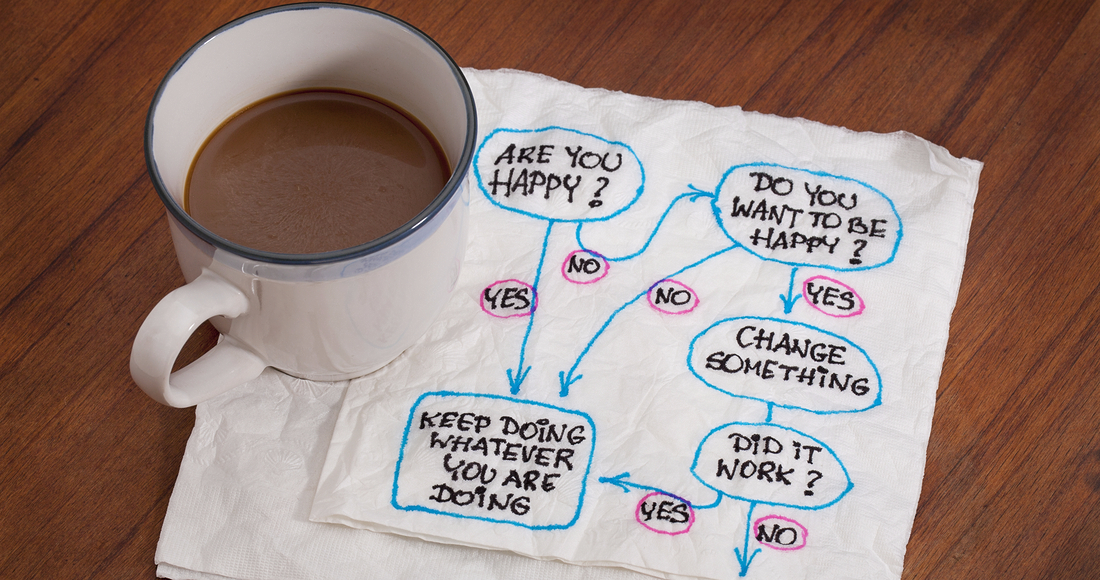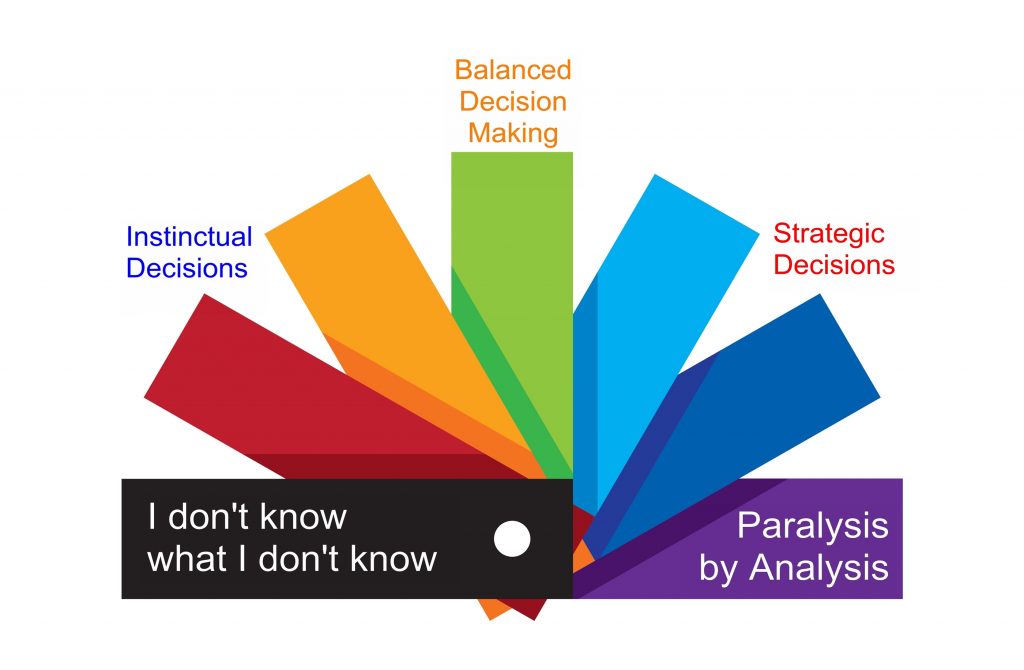Deciding is the Hardest Decision
In the movie “You’ve got mail” there is an observation made about people at a coffeeshop. As they order their very complicated drinks, Joe Fox, the character played by Tom Hanks explains…
”The whole purpose of places like Starbucks is for people with no decision-making ability whatsoever to make six decisions just to buy one cup of coffee. Short, tall, light, dark, caf, decaf, low-fat, non-fat, etc. So people who don't know what the hell they're doing or who on earth they are can, for only $2.95, get not just a cup of coffee but an absolutely defining sense of self: Tall. Decaf. Cappuccino. - Joe Fox
Just for the record, I am a grande americano.
However, this is only one part of my Self. The other parts do know what the hell I am doing and who on earth I am. But I’ll be honest, it took me a long time to get here. My decision to commit to a new career and a new work-style was wrought with the same challenges you might be having when contemplating a change. But I can tell you, swimming in “what if’s” and NOT making a decision is stressful. The sooner you can focus in on what you want, and commit yourself to obtaining it, the more peaceful and productive you will be.
Making a decision, any decision, is mentally taxing. There are options to analyze. Fears to acknowledge or ignore. Opinions thrown at you from experts and fools alike. Consequences to consider.Time also factors in. Some decisions need to be made very quickly, like which exit to take on a busy road or how to handle a hostile confrontation. Other decisions have long-term implications to consider, like should I get married, have a child, move across the country.
Some decisions are so anxiety-ridden that people never make them. They simply react to whatever life throws at them without ever taking active responsibility for where it is going. (“I don’t really like my partner/my job/my house but I’m afraid to even think about moving on.”)
Other decisions are, having been made once, are simply made out of habit over and over again. Yet, there is still a feeling of confidence and self-assuredness each time they are made. Hence, the observation Joe Fox made at Starbucks.
Deciding what you want to do with your life, the truly “life-altering” decisions, are the most difficult because of all the factors mentioned above. There are so many facets to the decision that there is an underlying fear of making a mistake. For example, will I make the wrong decision by focusing too much on one factor without giving adequate consideration of another? I call this decision-avoidance method the “I don’t know what I don’t know” fear. At the other end of the spectrum is the “paralysis by analysis” decision-avoidance method where people never make a decision because they can’t stop looking at smaller and smaller facets.
Believe it or not, this is one of those rare times where you want to be exactly in the middle.
People are most confident and comfortable with the decisions they make when they feel there is a balance between the unknown risk factors and the known consequences. To get there, you need to spend some time reflecting on the nature of the decision being made and your relationship to this decision at this moment in time. This means briefly stepping back from the details, the fears, the unsolicited advice, and the nitty-gritty of the actual question at hand and moving to a place of perspective.
To help you, I have listed out the most common questions I ask myself and my clients whenever a “big” decision is on the line:
Scoping out the Decision
Physical Fears — How likly is it that you will lose your shelter, your food, your livelihood as a consequence of the decision you make?
Mental Fears — How likely are you to be negatively effected by your own thoughts or the thoughts of others after you make this decision?
Plan B — Do you have the option of making a different decision in the future? i.e. Is the decision you are making now reversable or adaptable?
Deadlines — How much time do you have to make this decision?
Timelines — How long in the future will this decision directly effect you? How long must you stick with the decision you have made? i.e. is this a short-term commitment (like a new hair style) or a long-term commitment (like a tattoo)?
Feelings vs. Emotions — Imagine yourself making this decision. How do you feel (physically) when you picture yourself making this choice? What thoughts (mental pictures), if any, come immediately to mind?
I will explore the nature of these questions in-depth in other posts. But I encourage you to use these questions now as part of your decision-making process. Answering these questions puts the decision into perspective. It prepares you so that the nitty-gritty details don’t overwhelm you. It shifts your mindset from being anxiety-ridden to one of being in control and calm. Your outlook changes, and your confidence in your ability to analyze the details increases.
Don’t rush through the answers. Order yourself a coffee beverage and allow yourself to slow down. Sip slowly and think deeply about what each question above is truly asking. Focus on your responses, both mental and physical. Make notes if possible. The time you spend thinking about nothing else but the true nature of the decision at hand will increase your confidence in your decision once you make it.
As Joe Fox brilliantly observed, for the price of a cup off coffee, you too can get “an absolutely defining sense of self”.
Factors that influence How Satisfied You Are with the Decisions you Make
- Your belief that you achieved a balance between Instinctual Thinking and Strategic Thinking
- Your acknowledgment that you did spend an adequate amount of quality time considering your options.
- Your confidence in your ability to handle the consequences of this decision, whatever they may be.





Diane Ronitz
If I were at the age or the time in my life that I needed to make a change, I would definitely call you for that advice. But since we recently did make a huge life changing decision, we are content. But I would suggest to people ev.erywhere out there , take this step offered . It may be the best decision you will ever make.
.